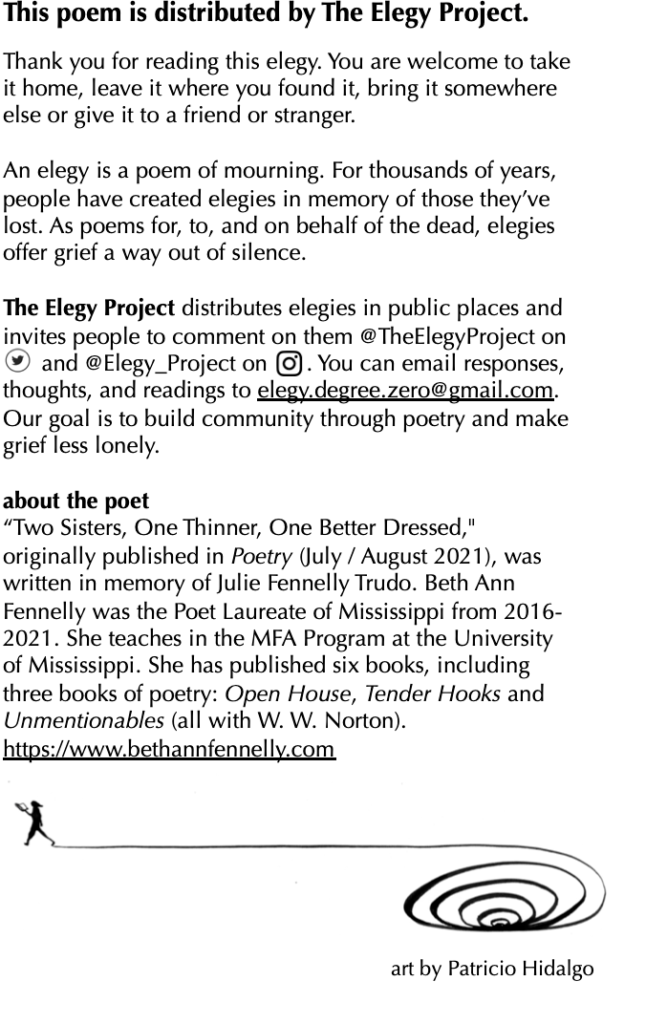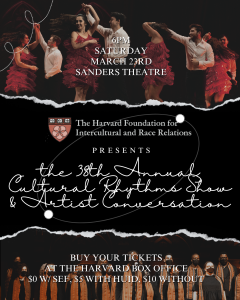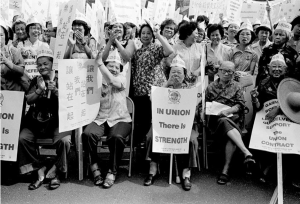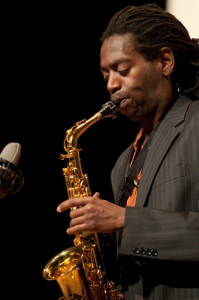The Elegy Project emerges from a profound need to connect through poetry, particularly in the wake of collective grief and loss experienced during the pandemic. This innovative initiative, spearheaded by Karen Elizabeth Bishop and David Sherman, takes root at Harvard’s Woodberry Poetry Room, where individuals are encouraged to express their deepest emotions. Each workshop serves as a supportive poetry workshop, engaging community members in crafting their elegies to honor their personal and shared experiences of sorrow. Participants, ranging from students to seasoned artists, are given the tools to navigate their feelings through writing, ultimately creating a tapestry of voices. The Elegy Project stands out as a beacon of hope, fostering communal healing and reflection through the art of grief and loss poetry.
Delving into the heart of mourning, the Elegy Project invites participants to explore the art of elegiac verse, a vital expression of human emotion in times of distress. This collaborative endeavor at the Woodberry Poetry Room is designed not only as a writing workshop but as a space for community engagement, helping individuals articulate their sentiments surrounding sorrow and remembrance. By utilizing prompts and the room’s literary resources, poets and enthusiasts alike embark on a journey that transforms personal grief into an intimate collective expression. This initiative celebrates the therapeutic power of community writing, encouraging a healing dialogue through shared experiences. Ultimately, the Elegy Project embodies the essence of poetic initiatives aimed at connecting people through their emotional landscapes.
Exploring the Elegy Project: Bridging Personal Grief and Community Connection
The Elegy Project stands as a poignant reminder of the universality of grief. By engaging with the community through poetry, Karen Elizabeth Bishop and David Sherman have created a platform that not only facilitates personal expression but also fosters collective healing. Participants in the Elegy workshops are encouraged to delve into their own experiences of loss, thus creating a dialogue that extends beyond the confines of their individual lives. This communal approach helps transform the isolating feelings of grief into shared understanding and empathy, making art an accessible means of processing life’s most challenging moments.
At workshops held in Harvard’s Woodberry Poetry Room, attendees from diverse backgrounds gather to explore the intricacies of elegiac poetry. This tapestry of voices enriches the discussion surrounding grief and loss, bridging gaps between different experiences and interpretations of the elegy form. As participants craft their poems, they partake in a centuries-old tradition of honoring those lost, while simultaneously addressing the emotional fallout stemming from societal events like the pandemic. The collaboration involved in the Elegy Project acts as a catalyst for growth, allowing individuals to confront their personal histories within a supportive environment.
The Role of Community Writing in Processing Grief
Community writing initiatives like those of the Elegy Project are integral to providing a supportive framework for individuals grappling with loss. Through group workshops, participants engage in a therapeutic exploration of their emotions, utilizing poetry to articulate complex feelings that may otherwise remain unexpressed. The creation of elegies—poems crafted in remembrance of loved ones—serves as a vital release, transforming suffering into words. Poetry workshops like this elevate the individual voice by framing personal narratives within the collective context of community, fostering an environment where shared experiences lead to communal healing.
Moreover, community writing projects inspire participants to discover the power of their own voices. Workshops held in settings such as the Woodberry Poetry Room provide not only the necessary resources, including prompts and guided instruction, but also a collaborative spirit that enlivens the poetic process. By inviting people to step outside their comfort zones and share their emotional journeys, these initiatives highlight the profound connection between shared grief and creative expression. Participants learn that vulnerability in writing can lead to empowerment, as they witness the courage of others in articulating their own stories.
Engagement with poetry not only demystifies the art form but also invites individuals to reclaim their narratives in the face of adversity. The Elegy Project, through its innovative outreach and community-centric approach, helps to break down barriers that often keep people from engaging with poetry. By providing an open platform for artistic expression, these workshops invite participants—whether seasoned poets or those new to the craft—to explore their relationship with grief, ultimately reinforcing the message that poetry has a rightful place in everyone’s healing journey.
Understanding the emotional weight of loss transforms the act of writing into a vital practice for many. The Elegy Project resonates with individuals from all walks of life, showcasing how poetry can serve as both a vessel for processing sorrow and a means for cultivating connections with others. Emphasizing that poetry is not confined to the pages of published works, but belongs to the collective human experience, these workshops empower individuals to embrace their identities as poets, while discovering the therapeutic potential of their own voices.
Benefits of Poetry Workshops in Connecting Individuals to Their Emotions
Participating in poetry workshops enables individuals to engage more deeply with their emotions and understand their grief in a supportive environment. The Elegy Project, through its unique approach to the elegy form, encourages participants to articulate their personal experiences of loss while connecting with others who may be feeling similarly. Sharing one’s story alongside those of others creates a tapestry of emotional connection, helping each poet feel less alone in their experiences. This sense of community can be crucial in a world where mental health challenges are echoed through countless stories of loneliness, making the act of writing a collective endeavor.
Incorporating prompts and the shared resources of the Woodberry Poetry Room allows participants to explore their creativity without the pressure of producing an immediate masterpiece. Such approaches highlight that creativity can flourish within structured confines, offering a sense of liberation and encouraging individuals to let go of perfectionism. As participants draw inspiration from their surroundings and their fellow writers, the experience of crafting an elegy becomes a shared journey that nurtures not only the mind but also the heart. The essence of these workshops lies in their potential to unlock new pathways of understanding our emotions while celebrating the beauty of vulnerability.
Healing through Elegy: The Importance of Artistic Expression in Recovery
Artistic expression, particularly through the lens of elegy, serves as a vital tool for healing and recovery. The Elegy Project illustrates how engaging in the creative process provides a framework for individuals to confront their emotional struggles. Rather than avoiding pain, participants in the workshops learn to channel their grief into artistry that resonates with their personal narratives. By crafting elegies, individuals not only honor their loved ones but also create a tangible representation of their experiences, allowing them to grapple with their emotions in a constructive manner.
Moreover, the therapeutic benefits of writing can extend beyond the workshop space. Engaging with poetry enables individuals to process feelings of loss long after they’ve left the literary community. The Elegy Project’s commitment to making poetry accessible through public initiatives ensures that these expressions of pain are not confined to the walls of the workshop; they resonate within the larger community, enabling others to find solace in shared grief. As poet David Sherman emphasizes, creating poetry is fundamentally about reducing the isolation of grief, allowing all voices to emerge, thrive, and heal together.
Cultivating a Poetry Community: Engaging Beyond the Traditional Settings
Efforts like the Elegy Project foster a sense of agency among community members by inviting them to engage with poetry beyond traditional literary boundaries. By placing poem cards in everyday settings such as post offices and public transport, Sherman and Bishop encourage spontaneous interactions with poetry that may otherwise be overlooked. This grassroots approach allows individuals to travel through their daily lives while encountering moments of artistic reflection, seamlessly intertwining the written word with the fabric of everyday existence. Such initiatives not only share the beauty of poetry but also encourage an organic connection among community members.
Creating a hospitable space for poetry allows individuals from different backgrounds to learn from one another and share their distinct perspectives on grief and loss. Encouraging participation by employing unconventional methods fosters a more diverse representation of voices, reflecting the true nature of our collective experiences. Workshops not only serve as creative outlets but also nurture an appreciation for the nuances of language and expression that lie within our shared narratives. As individuals engage within this expansive tapestry of community writing, they learn that poetry transcends singular identity, uniting voices to form a collective power deserving of celebration.
The Elegy as a Reflective Medium: Understanding Loss through Remembrance
The elegy as a poetic form is unparalleled in its capacity to articulate the complexities of loss and remembrance. Reflecting on the past through elegiac tones enables poets and readers alike to confront sorrow while celebrating the lives of those who have passed. The Elegy Project embraces this reflective medium, inviting participants to engage in the cathartic practice of remembrance, offering a structured yet creative space to explore their grief. The act of writing and sharing elegies can transform personal experiences of loss into broader narratives that resonate with attendees, fostering both personal insight and communal reflection.
Furthermore, the elegy serves not only as a means to mourn but also to celebrate life’s transient beauty. Within the Elegy Project, participants learn how to craft their elegies as tributes that honor the essence of those they’ve lost. This recognition of beauty in the midst of sadness invites deeper and more nuanced conversations about mortality and the human condition. As poets articulate the intricacies of their grief, they uncover the remarkable ability of poetry to transform sorrow into a legacy, a truth that echoes throughout their shared experiences and fosters a sense of unity amongst participants.
The Legacy of the Elegy Project: Lasting Impact on Writing Communities
The Elegy Project has sown the seeds for a lasting legacy within the writing community, encouraging individuals to harness the power of poetry in navigating their emotional landscapes. The workshops and public outreach have inspired many to recognize the role of poetry as a form of personal expression, significantly contributing to the broader understanding of grief and loss in contemporary society. As participants craft their elegies, they not only articulate intimate emotions but also impart their wisdom onto others, making the impact of the project ripple through the community.
This initiative’s commitment to accessibility and diversity ensures that voices of all backgrounds are represented in the conversation surrounding loss and grief. Through its collaborative workshops held at the Woodberry Poetry Room, the Elegy Project has revitalized the engagement of community members with poetry, emphasizing its relevance to daily life and collective experiences. The continued partnership between poets, universities, and community members reflects a commitment to nurturing a literary culture that values the role of grief and remembrance in shaping the human experience, ultimately paving the way for more inclusive poetry initiatives.
Poetry as a Therapeutic Adventure: Embracing Emotional Vulnerability
Engaging with poetry as a therapeutic adventure allows individuals to navigate their emotional vulnerabilities in a supportive environment. The Elegy Project exemplifies how workshops can serve as safe spaces for expression, encouraging participants to embrace their raw emotions through the art of writing. As individuals explore the process of crafting elegies, they often confront feelings that have been suppressed, providing an opportunity for healing and personal growth. Such vulnerability not only enriches the workshop experience but also fosters deeper connections among participants, uniting their diverse emotional experiences through shared artistic expression.
The exploration of poetic forms like elegy reflects the necessity of allowing oneself to feel and articulate grief openly. The choice to write through sorrow becomes a form of empowerment, unfurling hidden emotions while embracing the complexity of what it means to mourn. Through the collaborative atmosphere of the Elegy Project, individuals are inspired to reframe their narratives, turning pain into poetry—making their emotions accessible not only personally but also for others who resonate with their truths. By nurturing an environment in which vulnerability blooms, participants collectively affirm that their voices matter in the vast dialogue about grief and loss.
Frequently Asked Questions
What is the Elegy Project and how does it relate to the Woodberry Poetry Room?
The Elegy Project is a public poetry initiative designed to address themes of grief and loss through the medium of elegy. It is conducted in collaboration with the Woodberry Poetry Room at Harvard, where workshops are held to help individuals craft their own elegies and connect through shared experiences of mourning. This initiative aims to make the process of grief less isolating and encourages community writing.
How can I participate in the elegy poetry workshops organized by the Elegy Project?
To participate in the elegy poetry workshops organized by the Elegy Project, interested individuals can keep an eye on announcements from the Woodberry Poetry Room. These workshops invite anyone from the community to join in the writing process, regardless of their poetry experience. By providing a supportive environment, these workshops help individuals engage with elegy and explore their emotions creatively.
What themes does the Elegy Project explore in its poetry workshops?
The Elegy Project explores profound themes such as grief, loss, and the human experience of mourning. By focusing on elegiac poetry, participants engage with the traditional elements of honoring the dead and expressing sorrow. The workshops aim to foster discussion and connection within the community while using poetry as a medium for processing personal and collective experiences of loss.
Where are the workshops for the Elegy Project held, and who leads them?
The workshops for the Elegy Project are held at the Woodberry Poetry Room, located in Harvard’s Lamont Library. They are led by esteemed poets and educators, such as Karen Elizabeth Bishop and David Sherman, who guide participants in the writing and workshopping of elegies, creating a collaborative and reflective atmosphere.
What is the significance of elegy in poetry and its connection to the community through the Elegy Project?
Elegy holds significant value in poetry as it encapsulates the universal experience of loss, allowing individuals to mourn, praise, and console. Through the Elegy Project, the community comes together to share their experiences openly, fostering deeper connections. The workshops encourage participants to express their feelings related to grief, thereby making the emotional journey more communal and less solitary.
How does the Elegy Project utilize poetry cards in its community engagement strategy?
The Elegy Project utilizes poetry cards as a unique community engagement strategy by placing them in public locations for individuals to discover. This method, described as ‘aggressively random,’ allows poetry to reach a wider audience, encouraging spontaneous connections with themes of elegy and grief, while also inviting individuals to reflect on their own experiences with loss.
What benefits do participants gain from the Elegy Project’s poetry workshops?
Participants in the Elegy Project’s poetry workshops gain valuable benefits such as enhanced creative expression, the support of a like-minded community, and the opportunity to process grief through writing. Workshops provide prompts and a structured environment, making it easier for individuals to engage with their emotions and explore the art of elegy, thus enriching their personal and communal experiences.
| Key Points |
|---|
| The Elegy Project aims to connect individuals through poetry addressing themes of loss and loneliness, particularly influenced by the pandemic. |
| Workshop participants included poets and non-poets engaged in writing and sharing elegies, facilitated by experts Karen Elizabeth Bishop and David Sherman. |
| Peter Gizzi, a notable poet, contributed to the project with a reading highlighting the significance of elegy in expressing grief and celebration of life. |
| The project employs strategies such as distributing poem cards in public spaces to promote communal engagement with poetry. |
| The workshop serves as a platform for individuals from diverse backgrounds to process their experiences through the medium of poetry. |
| Mary Walker Graham emphasizes elegy as a fundamental human expression, facilitating the sharing of emotions related to loss. |
Summary
The Elegy Project provides an essential framework for exploring themes of grief and community through poetry. By fostering connections among participants from various backgrounds, the initiative allows individuals to share their experiences and express their emotions in a supportive environment. Workshops like these not only enrich the participants’ understanding of elegy but also serve to make the poetic process accessible to all, highlighting poetry’s role as a universal form of expression that transcends individual loneliness.




